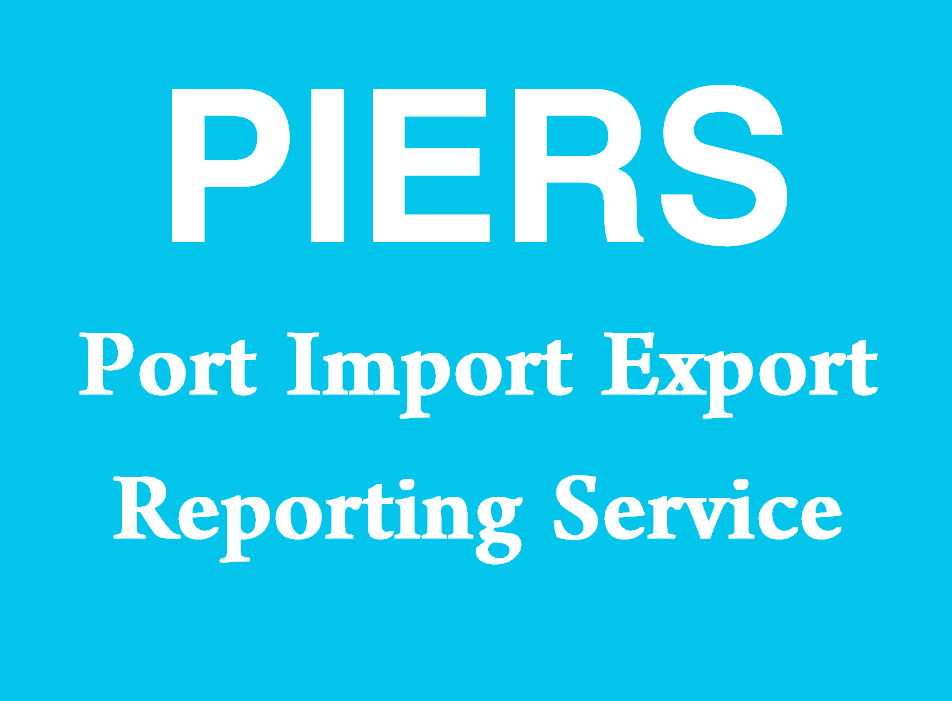What does ERO stand for?
ERO stands for Export Registration Order, a regulatory requirement imposed by governments to monitor and regulate exports of certain goods. This order mandates exporters to register their export transactions with the relevant authorities, providing essential information for statistical, regulatory, and security purposes. This comprehensive explanation will delve into the history, objectives, regulatory framework, compliance procedures, and implications of Export Registration Orders, provide practical notes for importers dealing with EROs, offer sample sentences illustrating the use of the acronym ERO, and include a detailed table listing 20 other meanings of the acronym in various contexts.

Comprehensive Explanation of Export Registration Order
History and Background
Export Registration Orders have been implemented by governments worldwide as part of their efforts to manage and control the export of strategic goods, regulate trade flows, and collect data for policy formulation. The history of EROs can be traced back to the early 20th century when countries began to introduce export controls during times of conflict and economic instability.
Key Developments
- World Wars: During World Wars I and II, many countries imposed export controls and registration requirements to ensure the availability of essential goods for domestic consumption and military purposes.
- Cold War Era: The Cold War era witnessed the proliferation of export controls and registration orders as countries sought to prevent the transfer of strategic technologies and materials to potential adversaries.
- Globalization: In the era of globalization, EROs have evolved to address emerging challenges such as proliferation of weapons of mass destruction, terrorism financing, and trade fraud.
Objectives and Goals
The primary objectives of Export Registration Orders are:
- Regulatory Compliance: To ensure exporters comply with licensing, documentation, and reporting requirements mandated by export control regulations.
- Data Collection: To collect accurate and comprehensive data on export transactions for statistical analysis, economic planning, and policy formulation.
- Security Enhancement: To enhance national security by monitoring and controlling the export of strategic goods, dual-use items, and sensitive technologies.
- Trade Monitoring: To monitor trade flows and identify trends, patterns, and anomalies that may require regulatory intervention or investigation.
Regulatory Framework
EROs are typically issued by government agencies responsible for export control and trade regulation. These orders specify the goods, technologies, and destinations subject to registration requirements, as well as the procedures and timelines for compliance. The regulatory framework for EROs may include the following components:
Designated Goods and Technologies
EROs specify the categories of goods, technologies, and services subject to registration requirements. These may include military equipment, dual-use items, controlled substances, and other strategic goods.
Registration Procedures
Exporters are required to register their export transactions with the relevant authorities by submitting prescribed forms, declarations, and supporting documentation. Registration may be mandatory for all exports or limited to specific categories of goods or destinations.
Timelines and Deadlines
EROs specify the timelines and deadlines for exporters to submit registration documents and declarations. These timelines may vary depending on the nature of the goods, the destination country, and the urgency of the transaction.
Compliance Monitoring
Government agencies responsible for export control and trade regulation monitor compliance with EROs through inspections, audits, and enforcement actions. Non-compliance may result in penalties, fines, or other regulatory sanctions.
Compliance Procedures
Exporters must adhere to the following compliance procedures to fulfill ERO requirements:
Registration
Exporters must register their export transactions with the relevant authorities by submitting registration forms, declarations, and supporting documentation. This information typically includes details such as the nature of the goods, their value, quantity, destination country, and end-user information.
Documentation
Exporters must maintain accurate and up-to-date documentation related to their registered export transactions, including export licenses, shipping documents, invoices, and certificates of origin. These documents may be subject to inspection by regulatory authorities to verify compliance with EROs.
Record Keeping
Exporters are required to maintain comprehensive records of their export activities, including transactional data, communications, and correspondence related to ERO compliance. These records serve as evidence of regulatory compliance and may be requested by authorities during audits or investigations.
Compliance Audits
Government agencies responsible for export control and trade regulation conduct periodic audits and inspections to verify exporters’ compliance with EROs. These audits may include site visits, document reviews, interviews, and other investigative activities.
Implications and Consequences
Non-compliance with Export Registration Orders can have serious consequences for exporters, including:
- Legal Penalties: Exporters may face legal penalties, fines, or sanctions for failing to comply with ERO requirements, including export restrictions, licensing denials, or revocation of export privileges.
- Reputational Damage: Non-compliance can damage the reputation of exporters, leading to loss of trust among customers, business partners, and regulatory authorities.
- Business Disruption: Exporters may experience disruptions in their business operations due to regulatory investigations, enforcement actions, or export restrictions imposed as a result of non-compliance.
- Loss of Market Access: Failure to comply with EROs may result in loss of market access, as export destinations may impose import restrictions or sanctions on goods from non-compliant exporters.
Notes to Importers
Understanding ERO Requirements
Importers dealing with goods subject to EROs should understand the following requirements:
- Compliance Verification: Importers should verify that their suppliers comply with ERO requirements by obtaining relevant documentation and assurances of regulatory compliance.
- Risk Assessment: Importers should conduct a risk assessment to identify potential risks associated with ERO compliance, including legal, reputational, and operational risks.
- Due Diligence: Importers should exercise due diligence when sourcing from exporters subject to EROs, ensuring that export transactions are conducted in accordance with regulatory requirements.
Mitigating Compliance Risks
Importers can mitigate compliance risks associated with EROs through the following measures:
- Supplier Screening: Importers should screen their suppliers to ensure they have robust compliance programs in place to meet ERO requirements.
- Contractual Protections: Importers should include contractual provisions requiring suppliers to comply with EROs and indemnify importers for any non-compliance issues.
- Third-Party Verification: Importers can engage third-party auditors or compliance experts to verify suppliers’ compliance with EROs and assess their risk exposure.
Communication with Suppliers
Clear communication with suppliers subject to EROs is essential for importers:
- Compliance Awareness: Importers should educate their suppliers about ERO requirements and the importance of regulatory compliance to avoid disruptions in the supply chain.
- Documentation Requests: Importers should request relevant documentation from suppliers to demonstrate compliance with EROs, such as export registration certificates, licenses, and declarations.
- Collaborative Approach: Importers and suppliers should work collaboratively to address any compliance issues or concerns and ensure ongoing adherence to ERO requirements.
Monitoring and Due Diligence
Importers should monitor their suppliers’ compliance with EROs on an ongoing basis:
- Regular Reviews: Importers should conduct regular reviews of their suppliers’ compliance with EROs, including documentation reviews, site visits, and audits.
- Due Diligence Checks: Importers should perform due diligence checks on new suppliers to assess their compliance history, reputation, and risk profile.
- Incident Reporting: Importers should establish procedures for reporting and addressing compliance incidents or non-compliance issues promptly.
Risk Management Strategies
Importers can implement risk management strategies to mitigate the impact of non-compliance with EROs:
- Risk Assessment: Importers should conduct periodic risk assessments to identify and prioritize compliance risks associated with EROs, taking into account factors such as the nature of the goods, the regulatory environment, and the geographic regions involved.
- Risk Mitigation Measures: Importers should implement risk mitigation measures to address identified compliance risks effectively, such as enhancing due diligence procedures, implementing internal controls, and diversifying their supplier base.
- Contingency Planning: Importers should develop contingency plans to respond to potential compliance incidents or disruptions caused by non-compliance with EROs, including alternative sourcing strategies, crisis management protocols, and communication plans.
Collaboration with Regulatory Authorities
Importers should maintain open and constructive communication with regulatory authorities responsible for administering EROs:
- Information Sharing: Importers should share relevant information and documentation with regulatory authorities to demonstrate compliance with EROs and address any concerns or inquiries promptly.
- Regulatory Updates: Importers should stay informed about changes or updates to EROs and related regulations, proactively adapting their compliance practices and procedures accordingly.
- Engagement Opportunities: Importers can participate in industry forums, working groups, or consultations organized by regulatory authorities to provide input on EROs and advocate for their interests and concerns.
Sample Sentences Containing ERO and Their Meanings
- “The exporter obtained the necessary Export Registration Order before shipping the goods to ensure compliance with regulatory requirements.”
- This sentence illustrates the exporter’s adherence to regulatory requirements by obtaining an Export Registration Order before exporting the goods.
- “Importers should verify that their suppliers have obtained Export Registration Orders for all relevant export transactions to avoid potential compliance issues.”
- This sentence advises importers to ensure that their suppliers comply with ERO requirements to mitigate the risk of non-compliance and associated consequences.
- “Failure to register export transactions in accordance with the Export Registration Order may result in penalties or export restrictions imposed by regulatory authorities.”
- This sentence highlights the potential consequences of non-compliance with EROs, emphasizing the importance of regulatory adherence for exporters.
- “Exporters are responsible for maintaining accurate records of export transactions and providing timely updates to regulatory authorities as required by the Export Registration Order.”
- This sentence outlines the exporter’s obligations under EROs to maintain records and communicate with regulatory authorities to ensure compliance.
- “Importers should conduct due diligence on their suppliers’ compliance with Export Registration Orders to mitigate the risk of disruptions in the supply chain.”
- This sentence underscores the importance of importers’ proactive approach to ensuring supplier compliance with EROs to maintain the integrity and continuity of their supply chain.
Other Meanings of ERO
The acronym ERO can have various meanings in different contexts. The table below provides a detailed overview of 20 alternative meanings of the acronym:
| Acronym | Full Form | Description |
|---|---|---|
| ERO | Emergency Restoration Order | An order issued by authorities to restore essential services or infrastructure in emergency situations. |
| ERO | Employee Relations Officer | An individual responsible for managing employee relations and addressing workplace issues within an organization. |
| ERO | Education Resource Officer | A professional providing educational resources and support services to students, teachers, and schools. |
| ERO | Electoral Registration Officer | A government official responsible for maintaining electoral registers and conducting voter registration processes. |
| ERO | Environmental Remediation Order | An order issued to remediate environmental contamination or pollution in compliance with regulatory requirements. |
| ERO | Energy Regulatory Office | A regulatory agency responsible for overseeing energy markets, utilities, and infrastructure. |
| ERO | Emergency Response Organization | An organization tasked with coordinating emergency response and disaster management efforts. |
| ERO | Employee Recognition Program | A program designed to acknowledge and reward employee contributions and achievements within an organization. |
| ERO | Educational Research Organization | An organization dedicated to conducting research and studies in the field of education. |
| ERO | Employee Retention Offer | An offer made by employers to retain valued employees through incentives, benefits, or career advancement opportunities. |
| ERO | Economic Recovery Office | An office responsible for coordinating efforts to promote economic recovery and revitalization in a specific region or community. |
| ERO | Emergency Relief Organization | An organization providing humanitarian aid and relief services in response to natural disasters, conflicts, or crises. |
| ERO | Employee Relations Committee | A committee within an organization responsible for addressing employee grievances, disputes, and labor-related issues. |
| ERO | Equipment Replacement Order | An order issued to replace or upgrade equipment, machinery, or infrastructure in compliance with organizational requirements. |
| ERO | Employment Rights Officer | An official responsible for enforcing labor laws, regulations, and employment rights within a jurisdiction. |
| ERO | External Review Organization | An independent organization tasked with conducting reviews and evaluations of internal processes, practices, or decisions. |
| ERO | Engineering Research Organization | An organization specializing in engineering research, innovation, and technology development. |
| ERO | Economic Reform Organization | An organization advocating for economic reforms, policy changes, and regulatory initiatives to stimulate economic growth. |
| ERO | Emergency Response Officer | An individual responsible for coordinating emergency response activities and resources in crisis situations. |
| ERO | Environmental Resources Office | An office tasked with managing and preserving environmental resources, including land, water, and wildlife. |






